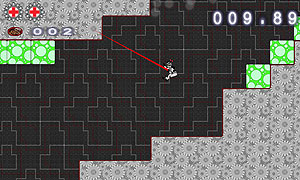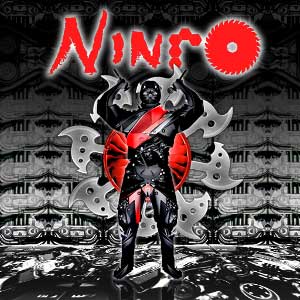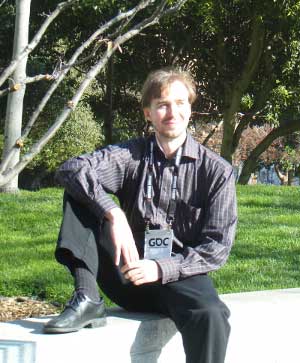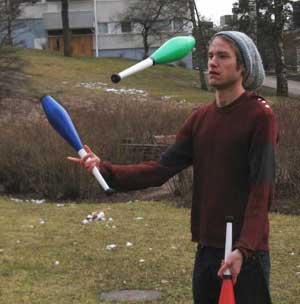The story of the little games studio
 Mika Urtela and Hannu Pajula, graduates of the Department of Computer Science, are realising their piña colada-flavoured dreams in their game-producing company, Soul Aim Studios. This is the beginning of their story. The piña colada part of it has not come true yet, but they're working at it.
Mika Urtela and Hannu Pajula, graduates of the Department of Computer Science, are realising their piña colada-flavoured dreams in their game-producing company, Soul Aim Studios. This is the beginning of their story. The piña colada part of it has not come true yet, but they're working at it.

First steps on a game-developer’s path
One of the most common dreams among users, students and workers in the IT field is to develop their own game. Though we are now working in our own game studio (Soul Aim Studios), our starting point was probably similar to countless other game developers’: we wanted to make that dream of our own, 'real' game come true.
We were both interested in many kinds of games, from board games to digital ones. From this starting point, it was easy to convince a legendary code-writer (Mika Urtela) to implement an original game idea. The concept was to use current technology and a modern appearance to combine a card game like Magic the Gathering with advancing from level to level as in Super Mario. The prototype of the game was soon completed and was nice to play, though it was hard to approach for a new player. After the prototype, we cooperated intensely for months to improve the usability. We tried hard, but the outcome was to be expected: the project was too big and it is still on ice.
The most important lessons are learned the hard way. If you want to develop the game of your dreams, do not make it your first game. There are many practical issues in games development that are not apparent in an amateur development. Giving the interface an intuitive finish, creating menus that coincide with current expectations, and honing graphical effects and the appearance into a marketable whole. The restructuring of the code needed for these features can also pose a problem. If all the above suddenly comes crashing down on you, it is usually too late to try and simplify the game so that it would be realistic to manufacture it.
 Work for expert data processors
Work for expert data processors
Ideas are free. The average game designer produces 14 great game ideas per week. It is unlikely that a single one of those ideas will be implemented, much less successful, without a good deal of code-writing skills and knowledge of the theoretical side of computation. Most of the basic and intermediate courses in computer science are closely associated with skills that enable us to develop the more complex games.
The Department of Computer Science earns our gratitude for, from time to time, organising courses specifically about developing games. For students, this is typically the only possibility they have of learning about the world of games development. Such courses include Pelit ja virtuaaliympäristöt (games and virtual environments), the From Game Design to Prototype Workshop and AI for Games.
 Child in basket, basket in stream
Child in basket, basket in stream
We reached something of a milestone on our game development path when Ninro, crunched together in two months, was published at the end of March (https://market.android.com/details?id=ninro.main). In spite of the highly pumped expectations of its developers, the game has not (yet) sold enough to take them to a paradise island to enjoy endless piña coladas and maidens cooling them with the leaves of tropical trees. It has, however, showed us showed us mistakes and problems with marketing a game, which we had not even thought of before.
(Soul Aim Studios)
More details:
- mika.urtela@helsinki.fi (ylempi kuva)
- hannu.pajula@helsinki.fi (alempi kuva)
- http://soulaimstudios.com
Editor: Hannu Toivonen
Translation: Marina Kurtén
